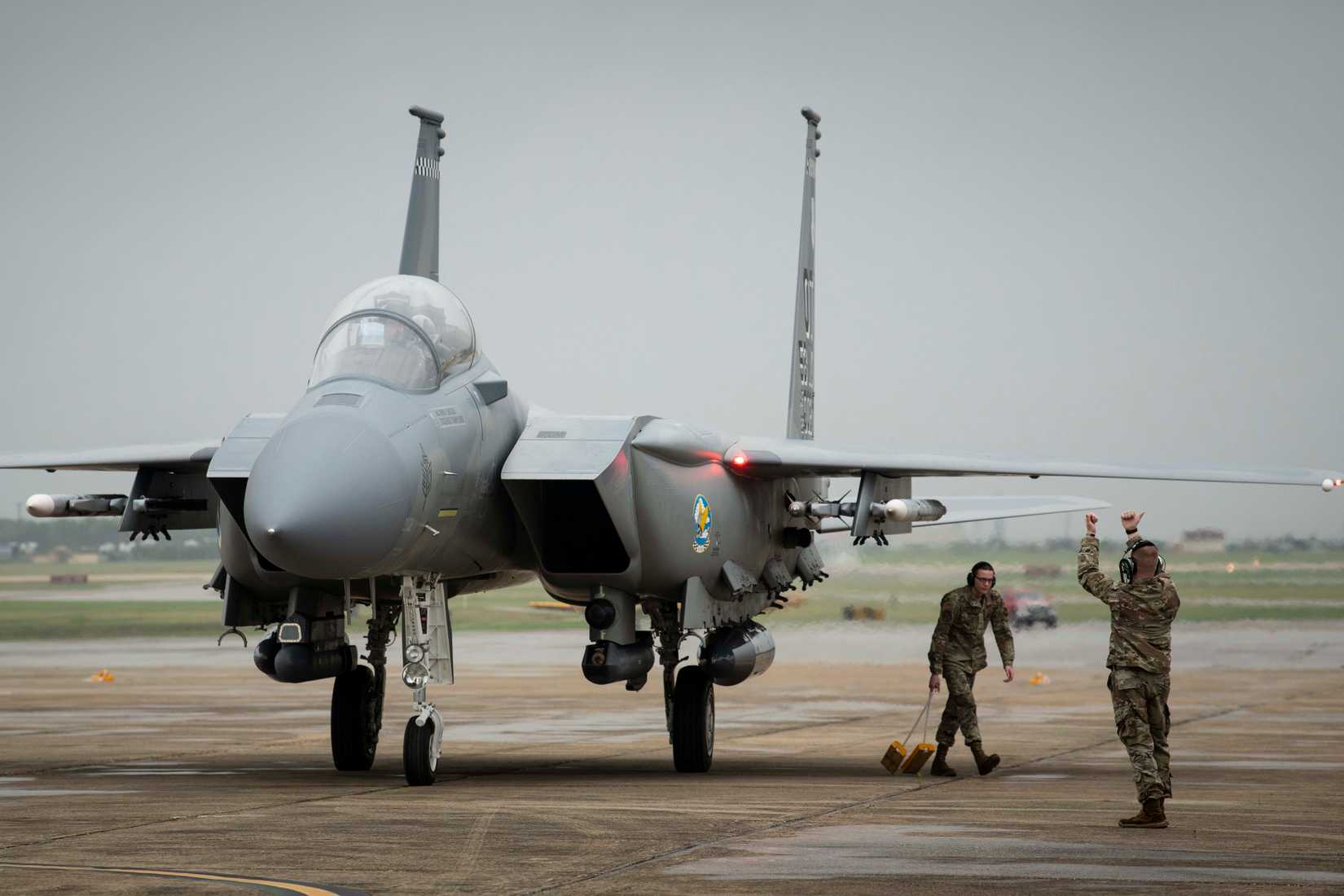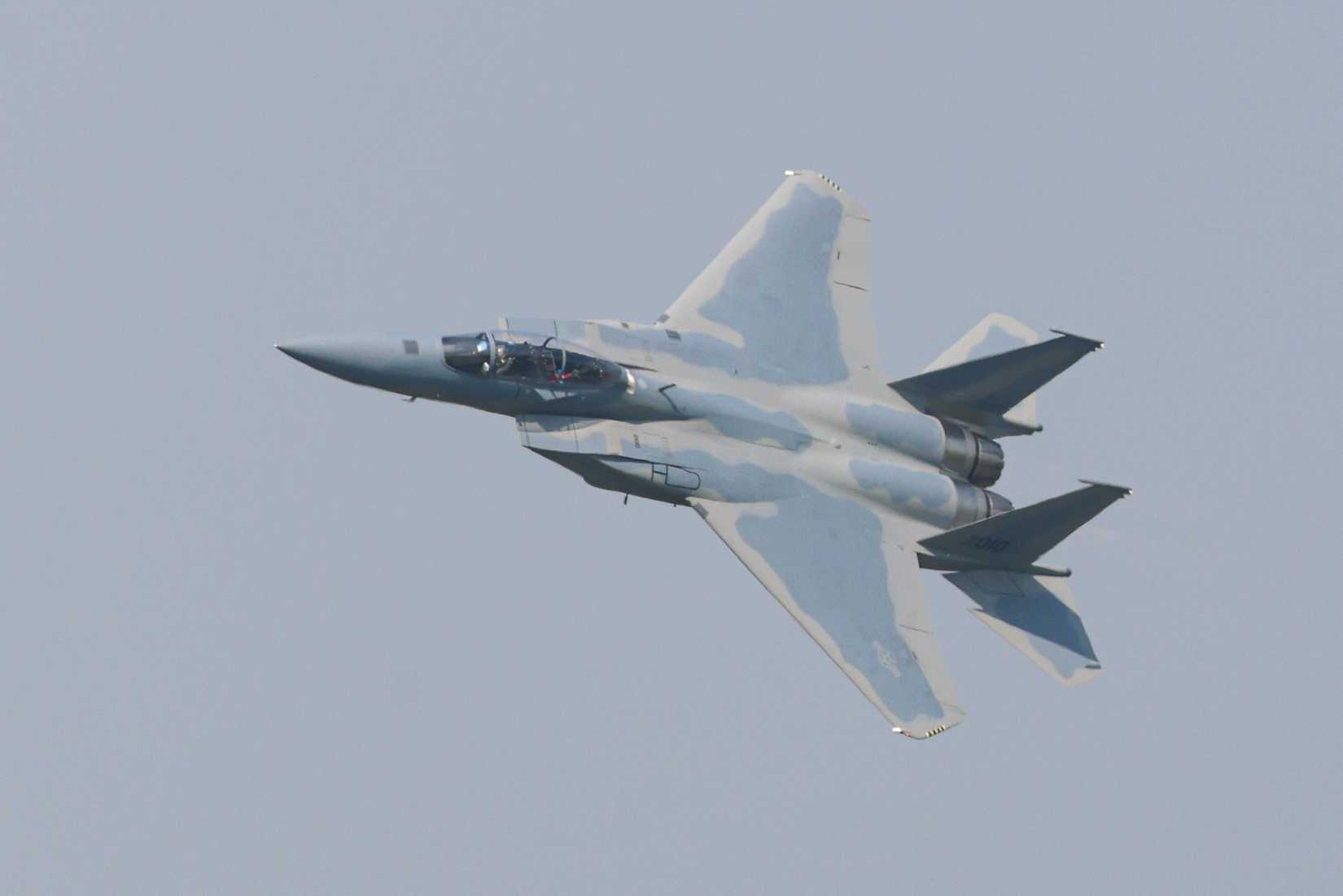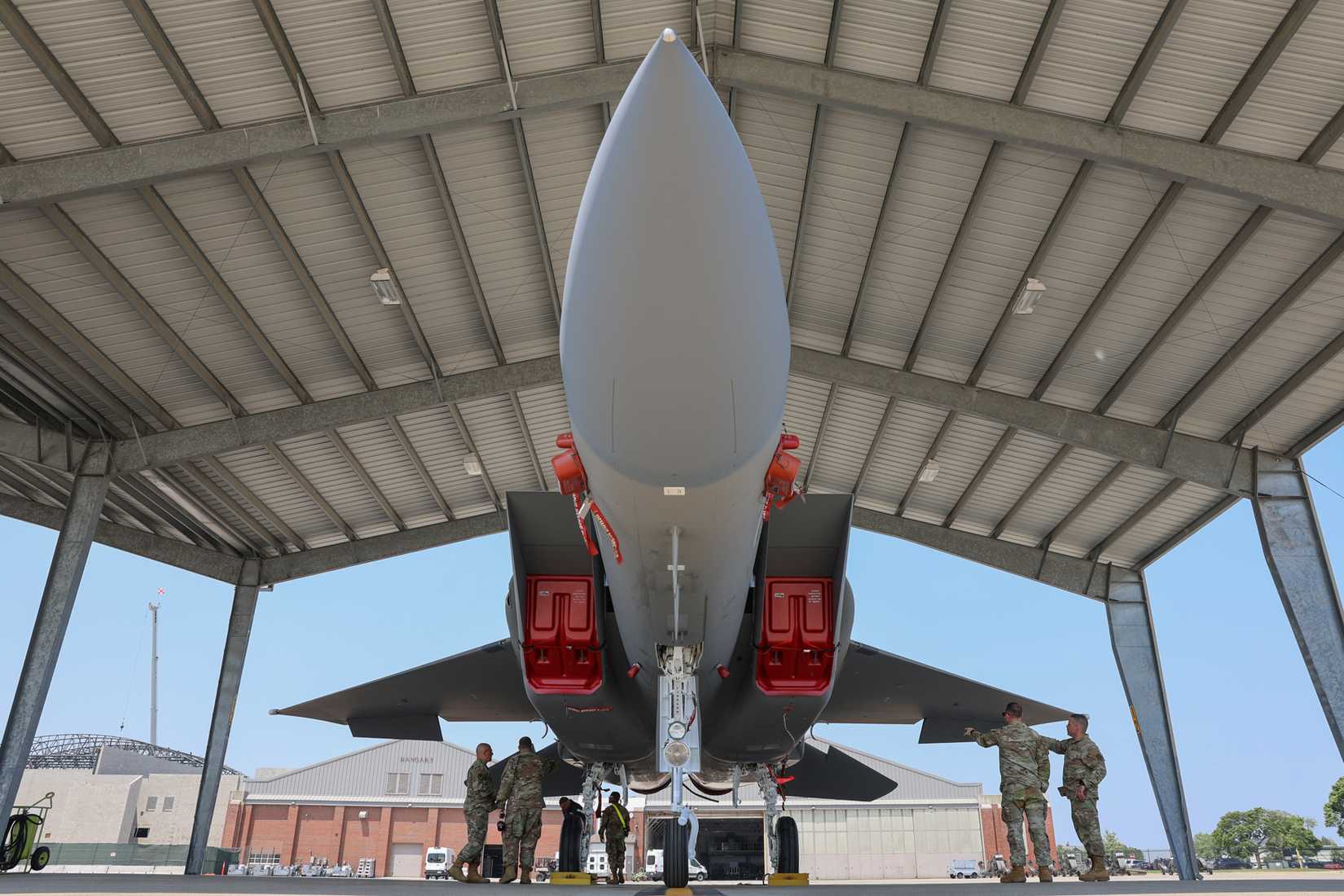![]() Boeing is behind on deliveries of the F-15EX fighter due to the ongoing strikes by union members in the St. Louis area. The strike has been going on for nearly three months, and the manufacturer has tried to remedy the situation by hiring permanent replacement workers to support its operations.
Boeing is behind on deliveries of the F-15EX fighter due to the ongoing strikes by union members in the St. Louis area. The strike has been going on for nearly three months, and the manufacturer has tried to remedy the situation by hiring permanent replacement workers to support its operations.
Boeing’s St. Louis facility is responsible for the production of various military aircraft, including the F-15, F/A-18, T-7 trainer, and the MQ-25 military drone. The plant also supports the Boeing 777X program. The planemaker and its workers, represented by the International Association of Machinists and Aerospace Workers (IAM) District 837 Union, have been in disagreement over wages. It is unclear how long the strikes will last.
Delayed Deliveries Of Military Aircraft
IAM District 837 members have been on strike since August 4 after failed wage negotiations between their employer and the union. According to Air & Space Forces Magazine, Gen. Kenneth S. Wilsbach told the Senate Armed Services Committee that the strikes have resulted in delays on the F-15EX program. He told the committee ahead of his October 9 confirmation hearing to be the Air Force Chief of Staff.
Wilsbach reported that the Boeing F-15EX is “within projected cost, schedule, and performance criteria.” The Air Force has only received the first batch of aircraft, with the second and final batch initially expected to be delivered this calendar year. Boeing has delivered 6 out of 12 aircraft in total, with the strikes affecting the program. The IAM Union blames the prolonged strike and consequent Air Force delivery delays on Boeing’s refusal to negotiate. IAM Union Resident General Vice President Jody Bennett said,
“Boeing’s refusal to even respond with an improved offer is an insult to every worker who builds this nation’s defense aircraft — and to the taxpayers footing the bill for the company’s delays.”
Negotiations Between Boeing And The Union
The IAM Union represents over 3,200 Boeing workers in the St. Louis area. Contract negotiations between Boeing and the union have been going on for months. The manufacturer extended a final offer on July 22, which was overwhelmingly rejected, before extending its updated best and final offer on July 31, which was also rejected. The workers have been on the picket line for 74 days, and according to Boeing, each employee has lost a total of $24,000 in wages and a $5,000 ratification bonus.
The employees have also missed five paychecks and lost benefits of up to $3,500 in medical coverage, automatic company contribution, and company match to 401(k). Since the start of the strike, the two parties have engaged in negotiations but have not been able to reach a consensus. According to the IAM, since mid-September, Boeing has “summarily rejected multiple union proposals” without making any counteroffers to meet its workers’ needs.
In an October 8 update, Dan Gillian, Air Dominance VP/GM and Senior St. Louis Site Executive, said that finding a way forward was more important than ever. He highlighted that the union is telling its members to hold out for a $10,000 ratification bonus and a different 401(k) formula. However, Boeing will not offer a bonus or a different 401(k) plan, but is willing to “shift around some elements” of its offer to meet the workers’ needs.
Unfair Labor Charge Against Boeing
Meanwhile, the IAM Union has filed an Unfair Labor Practice (ULP) charge with the National Labor Relations Board (NLRB) against Boeing for “refusing to bargain in good faith.” The IAM says that Boeing’s rejection of the union’s proposals violates its legal duty to negotiate in good faith under the National Labor Relations Act. The IAM proposed a ratified four-year contract on September 19, but it was not accepted.
The strikes have also been noted by Congress, with lawmakers from both parties calling on Boeing to negotiate in good faith. The union had earlier reported that negotiations were set to resume on September 30 with a federal mediator. The additional costs of the union’s pre-ratified offer would reportedly cost $50 million over four years. Meanwhile, one F-15 fighter costs approximately $100 million.





